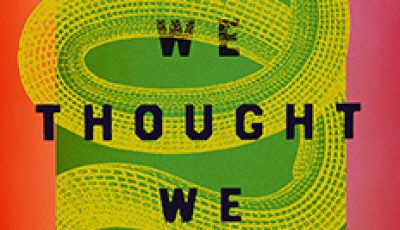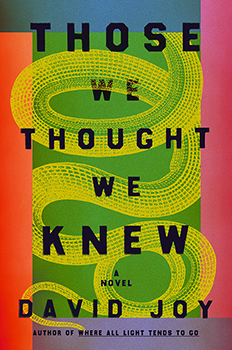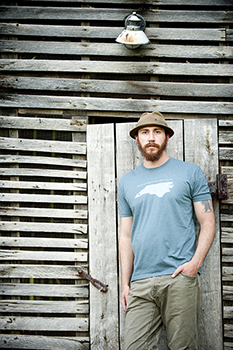

Latest Books Those We Thought We Knew by David Joy
 Toya Gardner, a young Black artist from Atlanta, has returned to her ancestral home in the North Carolina mountains to trace her family history and complete her graduate thesis. But when she encounters a still-standing Confederate monument in the heart of town, she sets her sights on something bigger.
Toya Gardner, a young Black artist from Atlanta, has returned to her ancestral home in the North Carolina mountains to trace her family history and complete her graduate thesis. But when she encounters a still-standing Confederate monument in the heart of town, she sets her sights on something bigger.
Meanwhile, local deputies find a man sleeping in the back of a station wagon and believe him to be nothing more than some slack-jawed drifter. Yet a search of the man’s vehicle reveals that he is a high-ranking member of the Klan, and the uncovering of a notebook filled with local names threatens to turn the mountain on end.
After two horrific crimes split the county apart, every soul must wrestle with deep and unspoken secrets that stretch back for generations. THOSE WE THOUGHT WE KNEW is an urgent unraveling of the dark underbelly of a community. Richly drawn and bracingly honest, it asks what happens when the people you’ve always known turn out to be monsters, what do you do when everything you ever believed crumbles away?
Recently, The Big Thrill sat down with David Joy to discuss THOSE WE THOUGHT WE KNEW:
What authors or books have influenced your career as a writer, and why?
If we think of writers like racehorses I’m very much in the lineage of folks like Larry Brown and William Gay and Harry Crews and Daniel Woodrell and Ron Rash. I think all of them would identify with a line to McCarthy to O’Connor to Welty, and likewise all of those would tie back in one way or another to Faulkner. That’s the line and the lineage. But with this book in particular I was reading a lot of Randall Kenan and Crystal Wilkinson and Natalie Baszile and Ernest Gaines. I became particularly fascinated with a local and relatively unknown writer named Victoria Casey McDonald who did all of this brilliant work tracing Black communities in western North Carolina and particularly Jackson County where I live and where all of my novels have been set. I think her work complicates the narrative most people have about Appalachia, and that’s what interests me most. I’m drawn to writers who are constantly challenging the narrative and presenting a world that most fail to recognize exists.
What attracts you to this book’s genre?
I’ve never been a writer who thought about genre. People have called my novels thrillers. People have called them crime fiction. But none of those things were intentional. I never thought about what they were or how they would be classified. I just wrote the story. With this novel, however, I wanted to work with traditional mystery elements, and the idea was to write a whodunit where the discovery was less a matter of finding the killer and more a matter of a social illumination. I wanted the characters to discover things about themselves, about the people they’d known all their lives, the people they loved, the community they were rooted within. I wanted the central questions to be internal. I thought it would be interesting to write a social novel that raised big questions but did it through the construct of mystery.
Which took shape first: plot, character, or setting?
I’ve always been a writer who had no idea where the story was headed. I just followed blindly and ended up wherever it led. This novel was different in that sense in that I always knew where it was headed. I remember having a conversation with Maurice Ruffin and T. Geronimo Johnson once and we were talking about how novels take shape. Geronimo said he always starts with what he wants the novel to do. That sounded so alien to me. I’d never worked like that. But in the case of THOSE WE THOUGHT WE KNEW it was very much a matter of knowing what I wanted the novel to do and then discovering the story that allowed it. Now with that said, everything I do begins with setting and character, and for me those two things are one in the same. I write about a very particular place and a very particular people. There’s a line in one of the older novels that says, “People and place were some inseparable thing knotted together so long ago that no amount of time had allowed for an answer of how to untie them.” That’s the reality of this place. Everything starts with that.
David Joy is the author of When These Mountains Burn (winner of the 2020 Dashiell Hammett Award), The Line That Held Us (winner of the 2018 SIBA Book Prize), The Weight of This World, and Where All Light Tends to Go (Edgar finalist for Best First Novel). Joy lives in Tuckasegee, North Carolina.
- LAST GIRL MISSING with K.L. Murphy - July 25, 2024
- CHILD OF DUST with Yigal Zur - July 25, 2024
- THE RAVENWOOD CONSPIRACY with Michael Siverling - July 19, 2024

